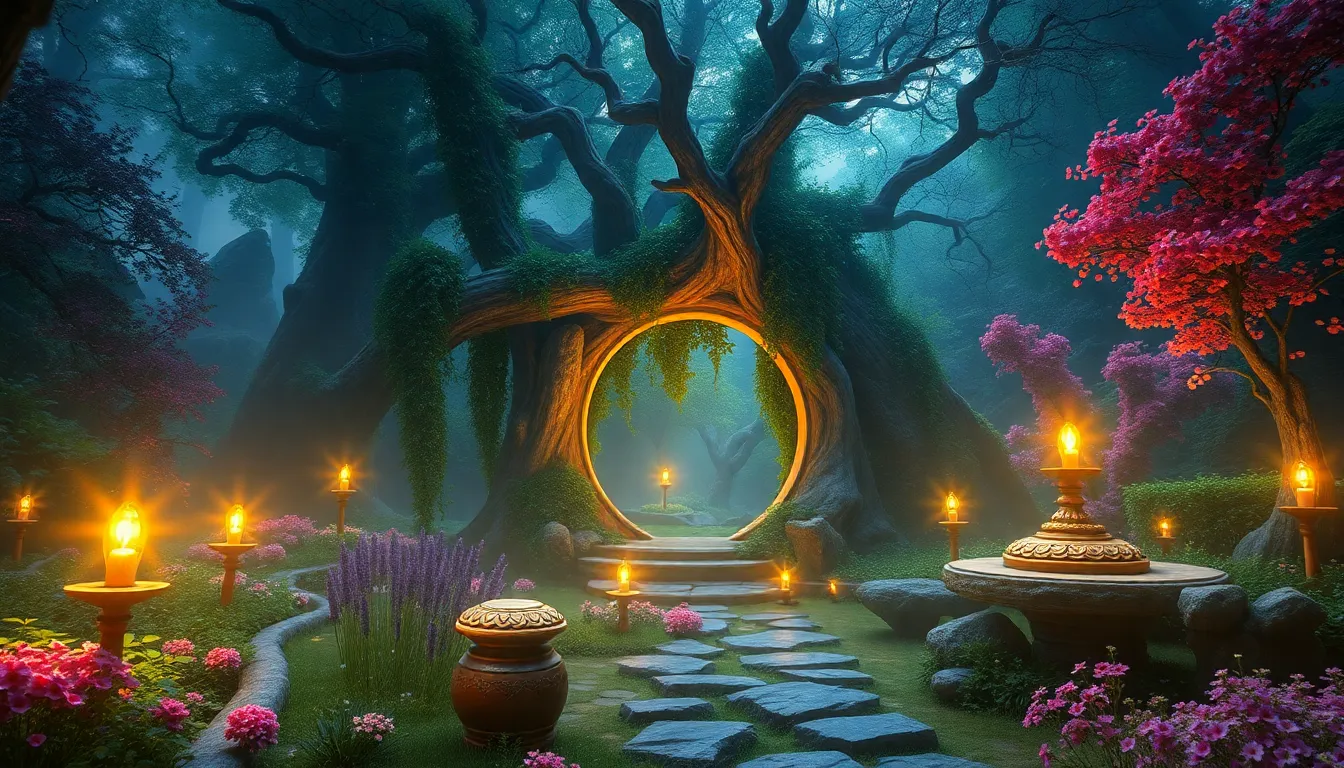I. Introduction – The Significance of African Mythology
African mythology constitutes a rich tapestry of beliefs, narratives, and practices that have profoundly shaped the cultural fabric of numerous African societies. This tapestry, intricately interwoven with the continent's diverse history and landscapes, serves as a wellspring of wisdom and cultural heritage. African myths, legends, and folktales are not merely tales of fantasy but embody a comprehensive worldview, encompassing the origins of the universe, the nature of humanity, and the interconnectedness of all living beings. This mythology provides a framework for understanding the world and one's place within it, offering invaluable insights into the collective consciousness of African societies.
II. Oral Tradition and Cultural Transmission
In many African cultures, mythology is primarily transmitted through oral tradition. This dynamic process involves the preservation and dissemination of cultural knowledge through storytelling, songs, and performances. Skilled griots, designated as the custodians of oral history, possess a remarkable ability to memorize and recite complex narratives. By passing down these stories from generation to generation, they ensure the continuity of cultural values, beliefs, and practices. Oral tradition thus serves as a vital mechanism for preserving and transmitting African mythology, fostering a sense of communal identity and cultural continuity.
III. Ancestors as Guardians of Wisdom
In African mythology, ancestors occupy a revered position as guardians of tradition and wisdom. They are believed to possess a profound understanding of the past and serve as a bridge between the living and the spirit world. Through dreams, visions, and other forms of communication, ancestors guide and protect their descendants, offering insights and advice. By honoring and respecting their ancestors, African communities maintain a deep connection to their cultural heritage and seek guidance from those who have come before them.
IV. Divinities and Supernatural Beings – Protectors of Heritage
The pantheon of African divinities and supernatural beings includes a diverse array of celestial and earthly entities. These beings, each with their unique attributes and powers, play a crucial role in protecting and preserving cultural heritage. They are often associated with specific aspects of nature, such as the sky, earth, water, and animals. By venerating and appeasing these divinities, African communities invoke their protection and seek their favor in maintaining cultural practices and traditions.
V. Myths, Legends, and Folktales – Preserving Cultural Narratives
Myths, legends, and folktales constitute an integral part of African mythology, serving as repositories of cultural narratives and beliefs. These stories offer insights into the origins of the world, the creation of humanity, and the nature of good and evil. They often feature heroes, tricksters, and supernatural beings who embody cultural values and teach valuable lessons about life and society. By listening to and sharing these stories, African communities reinforce their cultural identity and ensure the preservation of their heritage.
VI. Rituals and Ceremonies – Reinforcing Traditions
Rituals and ceremonies play a vital role in preserving and reinforcing African mythological traditions. These practices, deeply embedded within the fabric of African societies, provide opportunities for communities to connect with their heritage and honor their ancestors and divinities. Elaborate masquerades, where participants embody mythological characters, serve as living embodiments of cultural beliefs. Traditional festivals, often coinciding with agricultural cycles or seasonal changes, commemorate important events and reinforce cultural bonds. Through these rituals, African communities actively participate in the preservation and transmission of their mythology, fostering a sense of collective identity and cultural continuity.
VII. Art, Crafts, and Music – Expressions of Heritage
African art, crafts, and music are powerful mediums for expressing and preserving cultural heritage. Intricate sculptures, vibrant paintings, and finely crafted textiles often depict mythological scenes, divinities, and ancestral figures. These artistic creations provide visual representations of cultural beliefs and narratives, offering insights into the worldview of African societies. Traditional music, with its rhythmic beats and evocative melodies, serves as a medium for storytelling and cultural transmission. Through songs and musical performances, myths, legends, and historical events are passed down from generation to generation, ensuring the continuity of cultural memory and identity.
VIII. Storytelling and Dance – Preserving Cultural Expressions
Storytelling and dance hold immense significance in African cultures, serving as primary vehicles for preserving and transmitting mythology. Masterful storytellers, often accompanied by music and gestures, captivate audiences with tales of creation, epic battles, and the adventures of mythological heroes. These narratives not only entertain but also impart moral lessons, historical knowledge, and cultural values. Traditional dances, deeply rooted in mythology, embody the stories, beliefs, and rituals of African communities. Through the graceful movements and vibrant rhythms of dance, cultural narratives are expressed, preserving the essence of African heritage and fostering a sense of communal belonging.
IX. Contemporary Relevance and Adaptability
African mythology remains a vibrant and relevant force in contemporary African societies. While modernization and globalization have brought about changes in cultural practices, the underlying beliefs and narratives continue to shape the worldview of many Africans. Writers, artists, and musicians draw inspiration from mythology to create contemporary works that resonate with modern audiences. Moreover, African mythology has gained increasing recognition and appreciation on a global scale, contributing to a broader understanding of human diversity and cultural heritage.
X. Future Safeguarding of African Mythology
The safeguarding of African mythology is crucial for ensuring the preservation and transmission of cultural heritage for future generations. Collaborative efforts between governments, cultural institutions, and communities are essential in documenting, researching, and promoting mythological traditions. Encouraging the transmission of oral narratives, supporting traditional arts and crafts, and fostering cultural dialogue are vital steps towards ensuring the continuity of African mythology. By investing in the preservation of this rich heritage, we not only safeguard the past but also enrich the future, fostering a deeper appreciation for the diverse cultural tapestry that makes up human civilization.
FAQ
What is the significance of ancestors in African mythology?
Ancestors in African mythology are revered as guardians of tradition and wisdom, serving as intermediaries between the living and the spirit world. They offer guidance, protection, and insights to their descendants, reinforcing the importance of lineage and cultural continuity.
How do rituals and ceremonies contribute to the preservation of African mythology?
Rituals and ceremonies provide opportunities for communities to connect with their mythological traditions and honor their ancestors and divinities. Through masquerades, festivals, and other sacred practices, cultural beliefs and narratives are enacted and reinforced, fostering a sense of collective identity and cultural continuity.
What role do art, crafts, and music play in expressing African mythology?
Art, crafts, and music serve as mediums for expressing and preserving African mythology. Sculptures, paintings, textiles, and music often depict mythological scenes, divinities, and ancestral figures, providing visual and auditory representations of cultural beliefs and narratives. These artistic creations contribute to the preservation and transmission of African mythology, fostering an appreciation for the rich cultural heritage.
How is African mythology relevant in contemporary societies?
African mythology remains a vibrant force in contemporary African societies, influencing literature, art, music, and cultural practices. Writers, artists, and musicians draw inspiration from mythology to create contemporary works that resonate with modern audiences. Moreover, African mythology has gained global recognition and appreciation, contributing to a broader understanding of human diversity and cultural heritage.
What measures are important for safeguarding African mythology?
Safeguarding African mythology requires collaborative efforts between governments, cultural institutions, and communities. Documenting, researching, and promoting mythological traditions, encouraging the transmission of oral narratives, supporting traditional arts and crafts, and fostering cultural dialogue are vital steps towards ensuring the continuity of this rich heritage for future generations.



